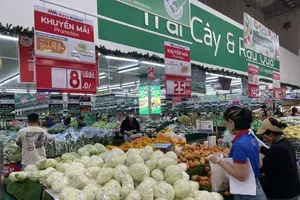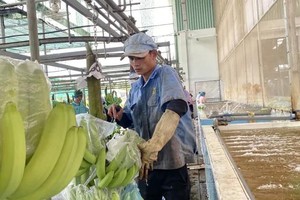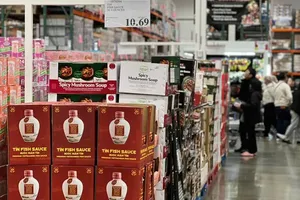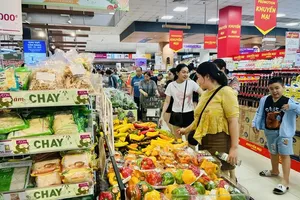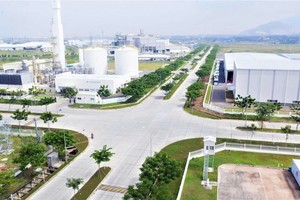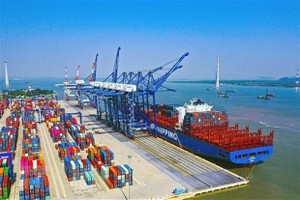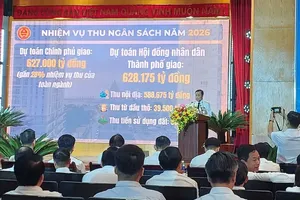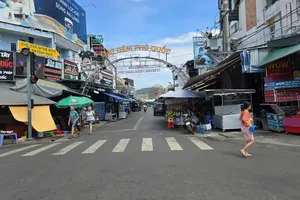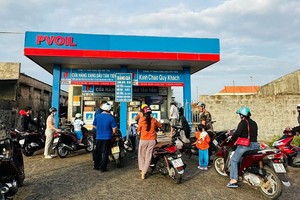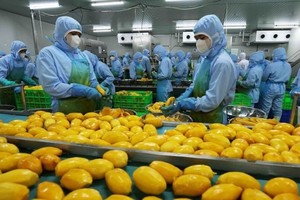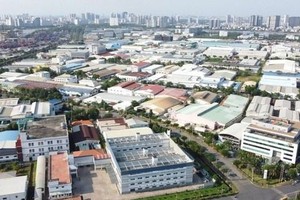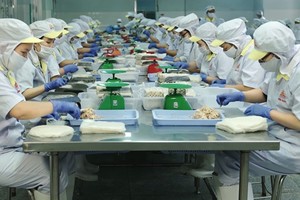The proposal by the Ministries of Industry and Trade and Agriculture and Rural Development to turn coffee into an export commodity under the same conditions as rice has raised mixed opinions.
Conflicting pricing
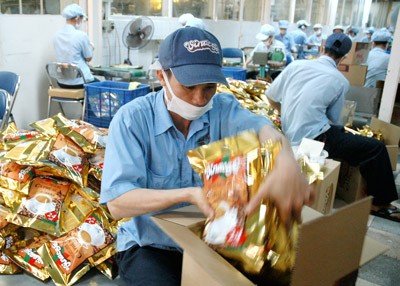
According to Vietnam Coffee Cocoa Association (Vicofa), there are around 20 foreign buyers who collect coffee for eight major coffee processors in the world, but there are more than 150 coffee export companies in Vietnam.
This might lead to a situation that Vietnamese coffee firms vie with each other to sell their products, and foreign companies can easily force them to lower their prices.
Most small coffee firms do not have warehouses or processing plants. They merely purchase coffee and export around 2-3 containers of coffee annually.
These firms also sell coffee to foreign companies which have factories or representative offices in Vietnam. Therefore, despite weak financial capacity, small firms still have the power to mess up the market and affect the coffee industry.
Luong Van Tu, chairman of Vicofa, said that there are only around 20 actual coffee trading companies and eight coffee processors in Vietnam, whose production accounts for more than 80 per cent of the total production contributed by more than 150 Vietnamese coffee companies.
Vietnamese coffee is always more appreciated than Indonesia’s in terms of quality. Thus, Vietnamese coffee must sell higher than Indonesian coffee. However, in reality, Vietnamese coffee has sold at lower prices because Vietnamese firms offer conflicting prices, creating favourable conditions for foreign importers to exploit costs.
Currently, most coffee companies in Vietnam are processing companies. There are a few firms that are strong enough to balance export of coffee. But even full capacity firms find it difficult to do business in such a messy market.
According to Doan Trieu Nhan, former deputy chairman of Vicofa, authorities must reduce coffee export hubs, as the prestige of the country’s coffee industry has been damaged by the operations of small export companies.
Foreign importers said that if Vietnam successfully controls the coffee market and manages its stability, they will be willing to buy coffee at a price above $100 per tonne. With an export production of more than 1 million tonnes a year, Vietnam’s coffee industry could bring in hundreds of millions of US dollars.
Vicofa evaluated that there will be around 50-60 companies that meet requirements after regulations on exporting coffee are applied. This is a strategic solution in which coffee firms will be selected carefully for processing and exporting coffee. Small firms that want to survive will have to affiliate with each other so that the coffee industry can improve in both quantity and quality and concentrate on raising value, instead of exporting raw coffee as they currently do.
Focus on quality
However, in order to realise this policy, it requires certain steps and regulations which are suitable with the current situation of the coffee industry. A draft on regulations for exporting coffee said that firms have to participate in processing and exporting coffee for two consecutive years with an annual minimum production of 5,000 tonnes to become a coffee export hub. Leading export companies find they easily meet these requirements. On the contrary, medium and small businesses do not.
In the highland province of Dak Lak, there are dozens of companies operating in the coffee industry for years, but many of them cannot meet the requirement of 5,000 tonnes of coffee a year.
Despite low production, some companies bring in huge profits. For instance, although Thang Loi Coffee Company only produces around 3,000 tonnes of coffee each year, its coffee is of a higher quality and sells at a higher price than other kinds.
Reality shows that although accounted to 20 per cent of the total amount of Robusta coffee in Vietnam, some companies still suffer losses. Some leading Arabica coffee exporters also had to give up their ground for smaller companies.
Thus, the government should encourage small firms which produce high quality coffee though their export volumes are low because many partners want to buy their coffee exclusively. While export volumes of some other companies are high, their contracts were cancelled due to late settlement, affecting the prestige of Vietnamese coffee.
It is necessary to reduce coffee export hubs but it requires preparation and a certain route. Decree 109 is expected to reduce the number of rice export hubs to a two-digit number; however, after the decree took effect on October 1, 2011, the number of rice export hubs rose to a three-digit number.
This raised concerns that small firms may shift operations from exporting real coffee to trading coffee, if there are no suitable regulations. And small firms will sell more coffee to foreign companies in Vietnam as big local companies do not have enough capital to buy coffee.
